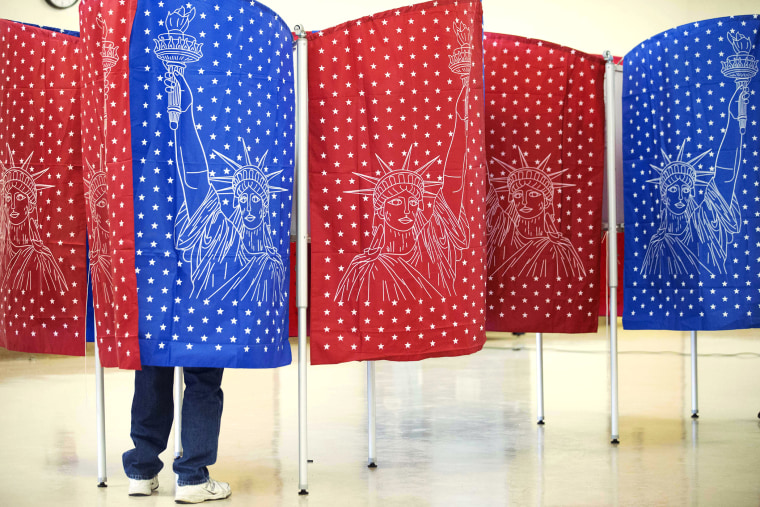Since early February, Bernie Sanders and Hillary Clinton have faced off in 37 nominating contests, and in that time, some patterns have emerged. Sanders has done extremely well in caucuses; Clinton has done better in primaries. Sanders has excelled with younger voters; Clinton has picked up greater support from older voters. Sanders has thrived in states with less racial and ethnic diversity; Clinton has been buoyed by African-American and Latino support.
But there's another key consideration that often gets overlooked: the kind of primary or caucus has a big effect on the outcome. More specifically, the question to keep in mind is whether the nominating contest is "closed" (only Democrats can participate) or "open" (anyone can help choose the Democratic nominee).
It's surprising just how much this matters. In closed contests, Clinton tends to have more success, while in open contests, Sanders, Congress' longest-serving independent, has consistent enjoyed an advantage.
All of this is of particular interest today, of course, because New York's presidential primaries are closed -- Democratic voters will choose the Democratic candidate and Republican voters will choose the Republican candidate.
For Team Sanders, this creates a challenge. The Washington Post reported this week that were it not for independent voters casting ballots in open contests, the Vermont senator "probably would've been sunk long ago."
In Michigan, where Sanders won his greatest upset, Clinton beat him by 18 points among self-identified Democrats, according to exit polls. In Oklahoma, one of the few states that Clinton won in 2008's primary but lost this year, she beat Sanders by nine points with Democrats. In Wisconsin, Sanders won overall by 13 points; he split the Democratic vote with Clinton 50-50. In each case, independents who felt like pulling a Democratic ballot were able to vote for Sanders. In New York, many of the people who crowded Sanders's rallies -- some lining up for hours, Bernie buttons on their winter coats -- admitted that they had not understood that New York's rules were different.
And as a result, those independent supporters will have no choice but to remain on the sidelines today. That doesn't necessarily mean Sanders is doomed in the Empire State, but it creates an additional wrinkle in his attempt at an upset.
Complicating matters further, there are 16 contests remaining in the Democratic race, including today's New York primary, and half of them limit participation to registered Democratic voters.
Is this an area for potential reforms?
The Post's article noted that Democratic National Committee Chairwoman Debbie Wasserman Schultz prefers a nominating process in which the party's voters choose the party's candidates.
"I'm speaking for myself -- this is not something that the national party's had a discussion on -- but in my opinion the Democratic primary should be determined by Democratic voters," Wasserman Schultz said last week.
And that's hardly an unreasonable position to take. Putting aside the specifics of the 2016 race, advocates for strong parties have long seen inherent value in closed primaries. Critics, meanwhile, argue that parties should try to bring more people into the process, even if that means reaching outside of the party's core base, and even if it opens the door to possible mischief (Democrats voting in Republican primaries or vice versa).
I've long wondered if there's an opportunity for a compromise in Democratic politics. Party officials tend to support the role of superdelegates as a possible stopgap measure if non-Democrats make a problematic choice in choosing the Democratic nominee. These officials, the thinking goes, can correct "mistakes" made through open primaries.
Perhaps the Democratic Party would give up on superdelegates' role altogether if the nominating process switched to closed primaries? Maybe trade one for the other?
